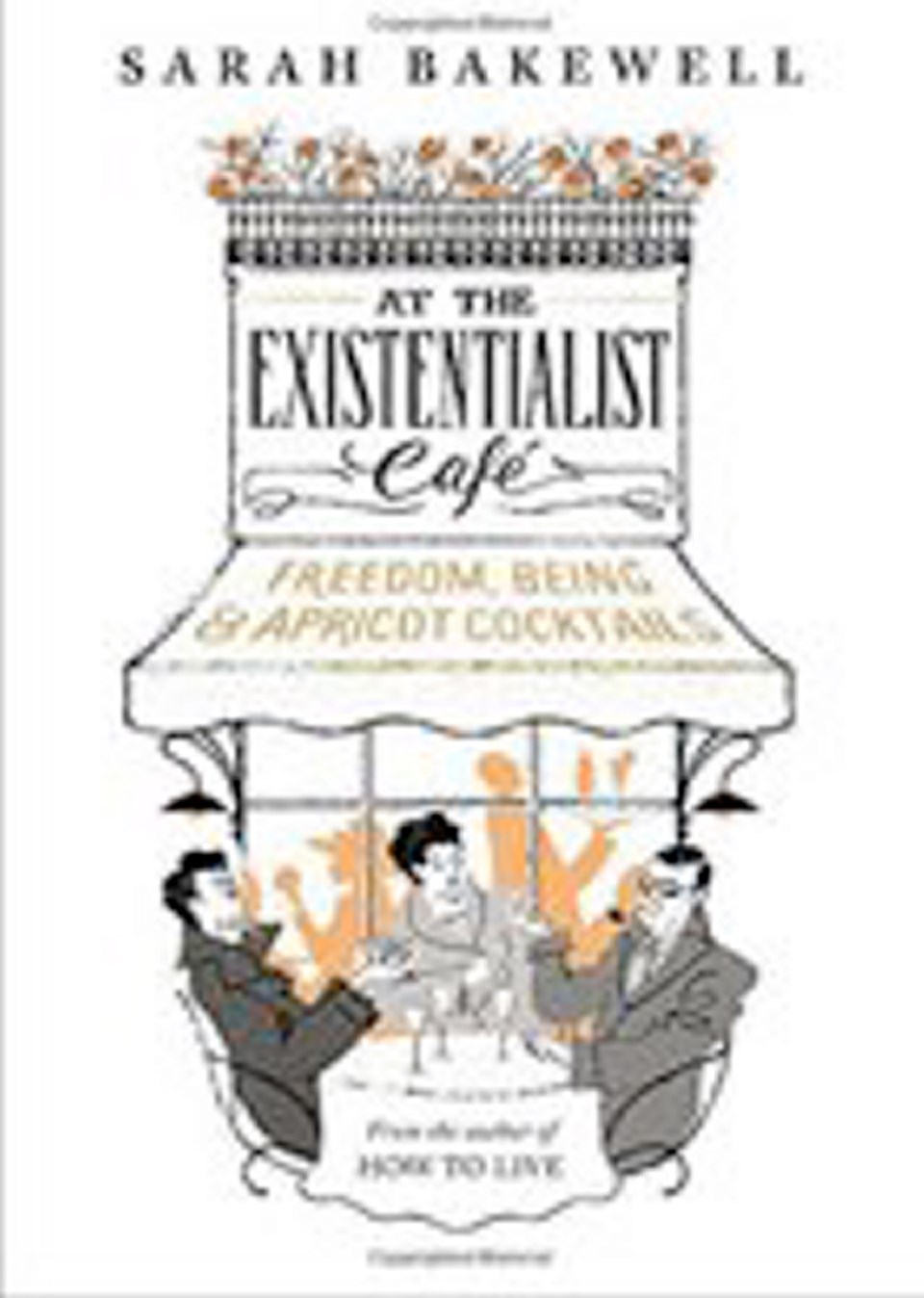At the Existentialist Café: Freedom, Being, and Apricot Cocktails with Jean-Paul Sartre, Simon de Beauvoir, Albert Camus, Martin Heidegger, Edmund Husserl, Karl Jaspers, Maurice Merleau-Ponty and Others; By Sarah Bakewell; Knopf Canada, 439 pp., $34
Here’s a startling thought. Consider what you are doing right now without realizing you’re doing it. For example, you are reading the English language written in the Roman alphabet, even though thousands of languages and writing systems have existed, and you would just as easily use one of them instead if you had been born in a different time or place. You are flipping pages of a newspaper rather than, say, turning through a scroll or listening to these words spoken out loud. And there’s a good chance you are wearing pants and a shirt rather than a grass skirt, kimono, sarong or toga.
In fact, if you had been born elsewhere, everything about you might be different. Not only the language you use and clothes you wear, but also what and how you eat, the groups you identify with, the things you value, the beliefs you hold, the god you worship and so on. There’s something strange about being human.
Other animals come into the world with a fixed nature: A sparrow in New York today is pretty much like a sparrow in China 2,000 years ago. But we are different. It’s as if we come into the world as unmoulded clay. The central thesis of the philosophical view known as existentialism is that there is no human nature or essence. We simply exist. Only through experience do we become one kind of person or another.
In her new book, At the Existentialist Café, Sarah Bakewell, author of How to Live and other titles, tells the story of the birth and development of existentialist philosophy in the early and middle decades of the 20th century. Her intellectually sharp and fluent narrative centres on Jean-Paul Sartre and Simone de Beauvoir, one of the great intellectual couples in modern history. Yet it extends back to the 19th-century philosophical movement called phenomenology, and forward to de Beauvoir’s death in 1986. Along the way, Bakewell interweaves engaging portraits of many of the great European and American intellectuals of the last century and half: Hannah Arendt, Albert Camus, Martin Heidegger and many others — showing how their ideas developed through their relationships with one another and in response to the Great Depression, the Second World War and Cold War.
Existentialism might seem to be a defeatist philosophy. We are, it says, just the random products of history and chance. Yet Sartre and de Beauvoir took it in the opposite direction. Because there is no fixed human nature, we are free to create ourselves, and thus obligated to take responsibility for the kind of people that we are or wish to become. Indeed, once we realize that everything about ourselves could be different, we see that we can’t push responsibility onto something or someone else. We are, Sartre said, “without excuse.” Bakewell summarizes the theory this way: “As a human being, I have no predefined nature at all. I create that nature through what I choose to do. Of course I may be influenced by my biology, or by aspects of my culture and personal background, but … I am always one step ahead of myself, making myself up as I go along.”
Some existentialist writing doesn’t stand up well, especially Sartre’s frenetic postwar attempts to combine existentialism with Marxism, which is basically its opposite, stating that human nature is not freely chosen but determined by the economic system under which a person lives. Yet other works, such as de Beauvoir’s The Second Sex, retain their excitement today and are still widely read. Existentialism gave her a framework for arguing that women are not born as the weaker sex, rather they learn to be less capable, less active, obedient, submissive and the perpetual object of a man’s gaze and judgment.
“One is not born, but rather becomes, a woman,” de Beauvoir wrote in one of the great existentialist statements of all time. Yet what was learned can be unlearned. De Beauvoir proposes that women can, over time, make themselves free and independent, the authors of their own lives — a revolutionary thought indeed when the book was published in 1949.
Bakewell writes with a sunny disposition and light touch that are sometimes at odds with the lives and subjects of these thinkers. Many of them suffered from severe poverty and illness (both physical and mental), and their works were written in response not only to personal suffering but to horrors such as the Holocaust, gulags and Algerian War. With that said, she combines confident handling of difficult philosophical concepts with a highly enjoyable writing style. I can’t think of a better introduction to modern intellectual history.



